Are you looking for a straightforward way to confirm your agent's representation? Writing a letter to officially acknowledge this partnership helps establish a solid foundation for your professional relationship. In this article, we'll explore the essential components of a confirmation letter, ensuring that you cover all necessary details and maintain a friendly tone. So, stick around to learn how to craft the perfect letter for your needs!
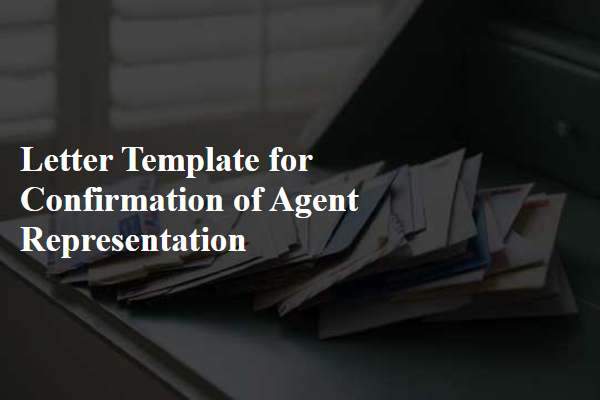
Agent and Client Contact Information
A confirmation of agent representation is crucial for establishing a formal relationship between a client and an agent, ensuring clarity in communication and responsibilities. This document typically includes detailed information such as the full legal name of the client, their address, phone number, and email address. It also specifies the agent's full name, professional title, agency name, contact details, and license number, if applicable. Clarity in this information helps prevent misunderstandings regarding roles during transactions or negotiations. Additionally, the confirmation may outline the scope of the representation, including specific services provided, duration of the agreement, and any relevant terms and conditions related to the representation. Note: Ensure to double-check all contact details for accuracy since incorrect information can lead to communication issues or delays in the representation process.
Scope of Representation
The scope of representation for an agent involves clearly delineating the authority granted to the agent in legal or business contexts. This can include a range of activities such as negotiating contracts, managing financial transactions, or representing clients in court proceedings. In cases related to real estate, for instance, an agent may be authorized to sign purchase agreements, schedule property showings, and handle negotiations with potential buyers and sellers. In business settings, the agent may execute contracts or make purchase decisions on behalf of the principal, ensuring all actions align with the specified goals. It is crucial to outline the duration of the representation, limitations on authority, and specific responsibilities to prevent any misunderstandings between the parties involved.
Duration of Agreement
The representation agreement between the principal and the designated agent, established in the context of real estate services or sales, typically outlines specific terms underscoring the duration, which may range from a standard six-month engagement to a year or longer, with specified termination clauses. This agreement serves as a foundational document governing the relationship, stipulating obligations and expectations between both parties. Each party must adhere to the outlined duration, ensuring compliance with the terms and conditions that include processes for renewal, renegotiation, or termination based on performance metrics or other relevant factors. Documenting such details is crucial for maintaining clarity and accountability throughout the partnership.
Terms and Conditions
An agent representation agreement outlines the specific terms and conditions governing the relationship between the agent and the principal. This document typically includes essential elements such as the duration of representation, commission structure, and geographic territory. The agreement often specifies the responsibilities of both parties, including the agent's obligation to market the principal's products and the principal's duty to provide necessary resources. Legal considerations may also be included, addressing dispute resolution methods and termination clauses. Having a clearly defined agreement is crucial for ensuring effective collaboration and mutually beneficial outcomes in business transactions.
Signatures and Date
A confirmation of agent representation document typically includes the representation of a client, details such as the agent's name and contact information, the client's name, a clear statement of the authority granted, and the effective dates of the representation, along with designated spaces for signatures and dates for both parties to validate the agreement. Each party is encouraged to review the document thoroughly before signing to ensure understanding and agreement to the terms outlined. This formalizes the relationship and expectations between the agent and the client, thereby providing a legally binding framework for the services to be rendered under this arrangement.

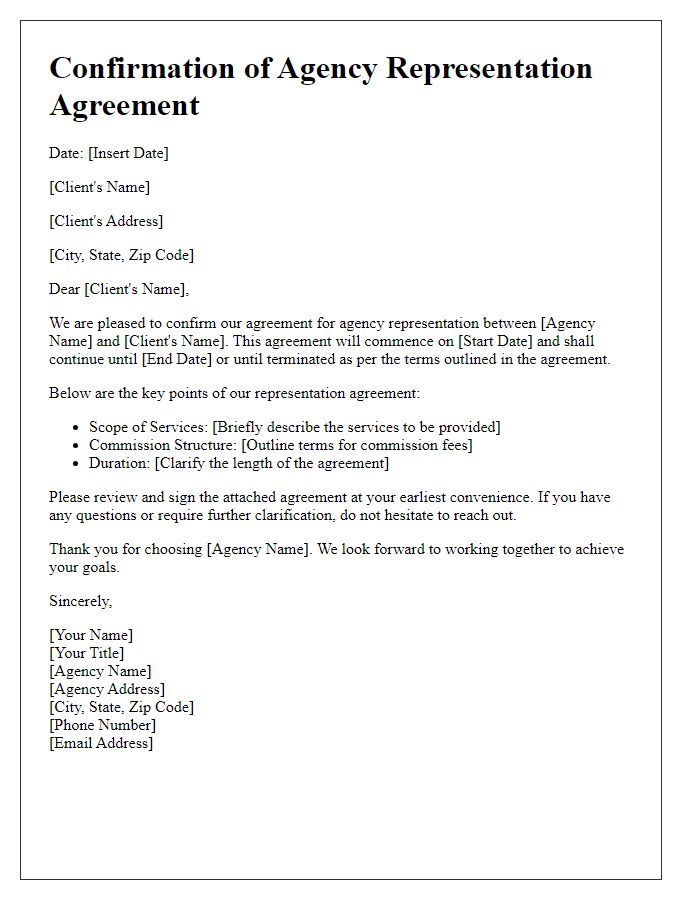
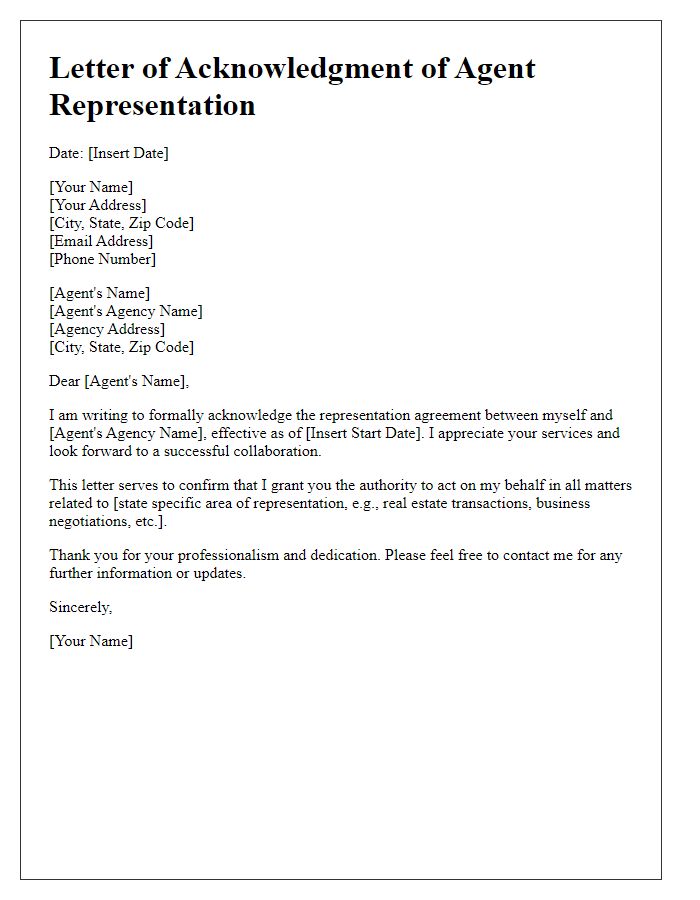
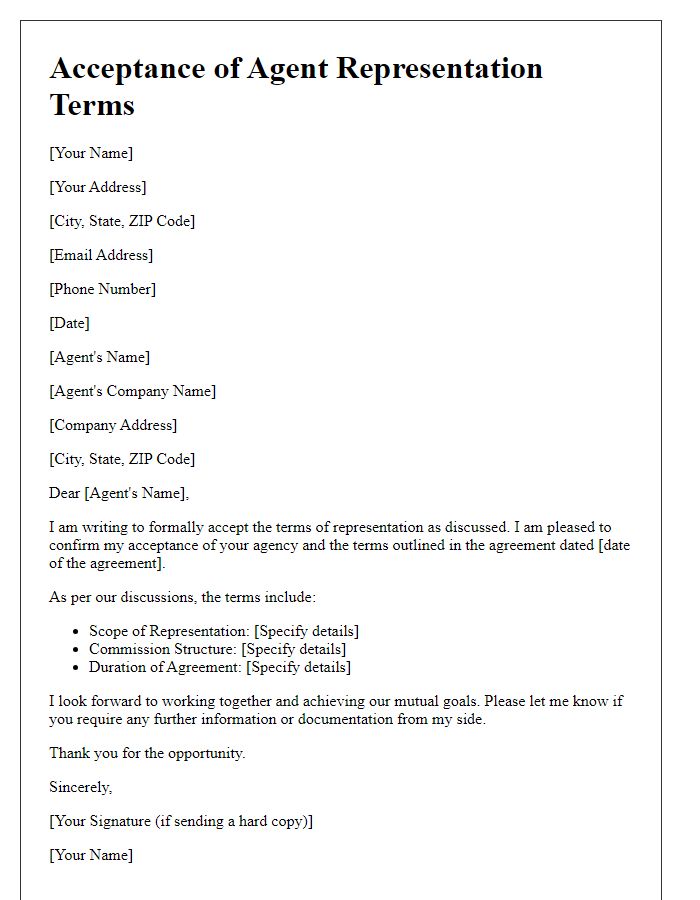
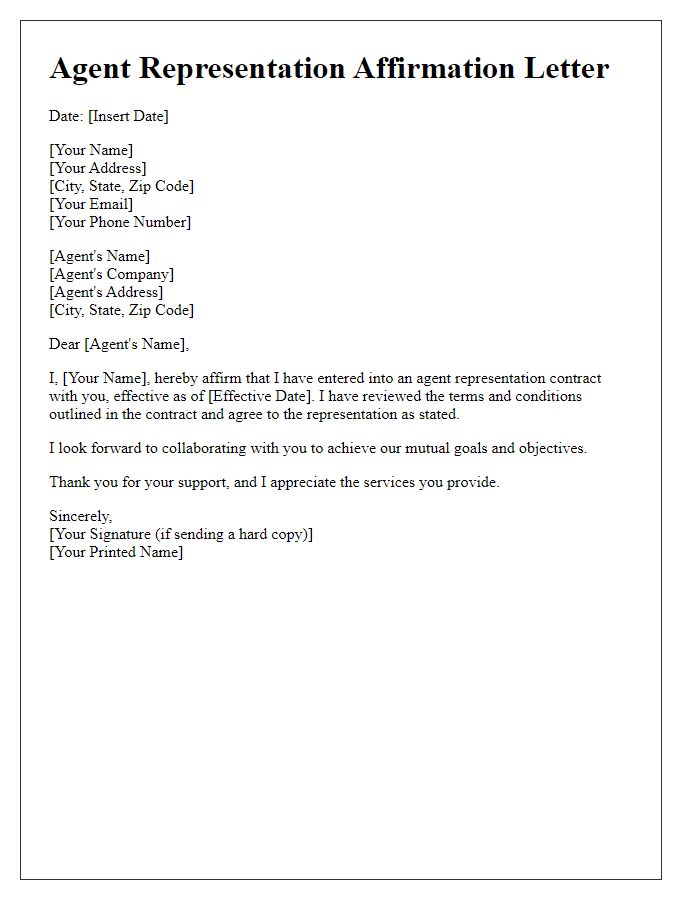
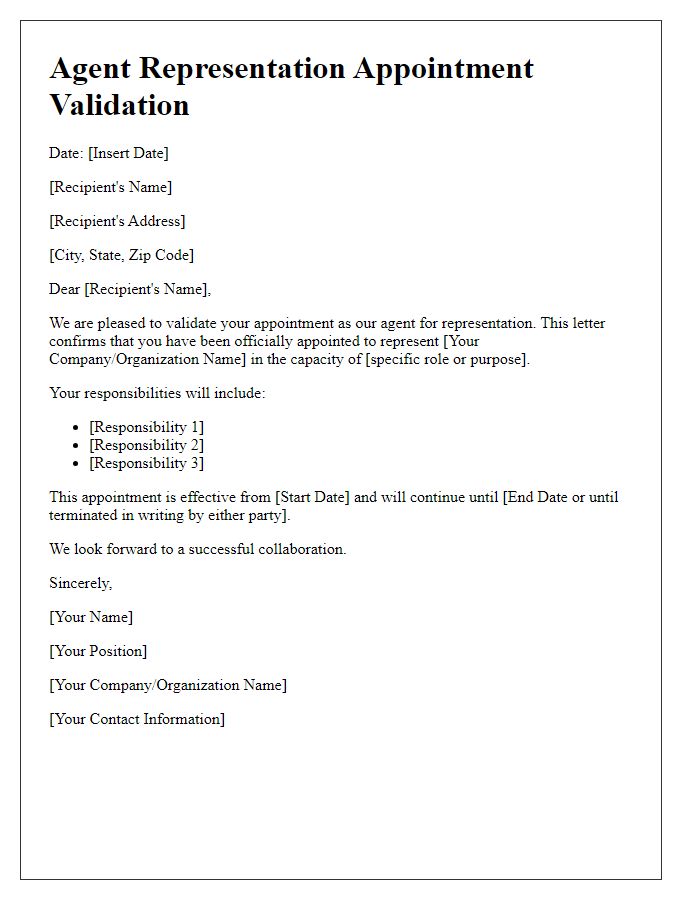
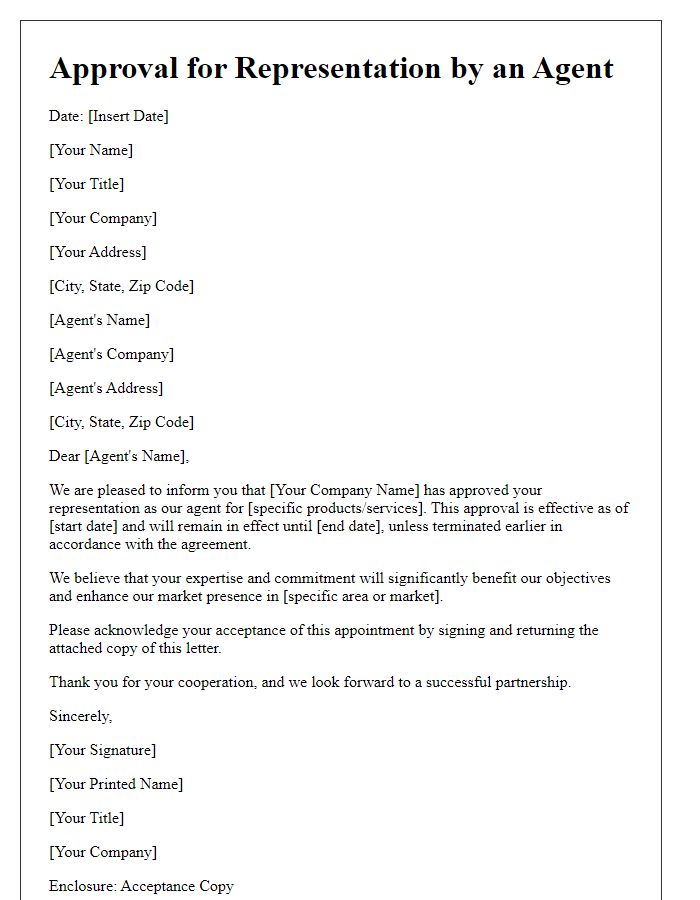
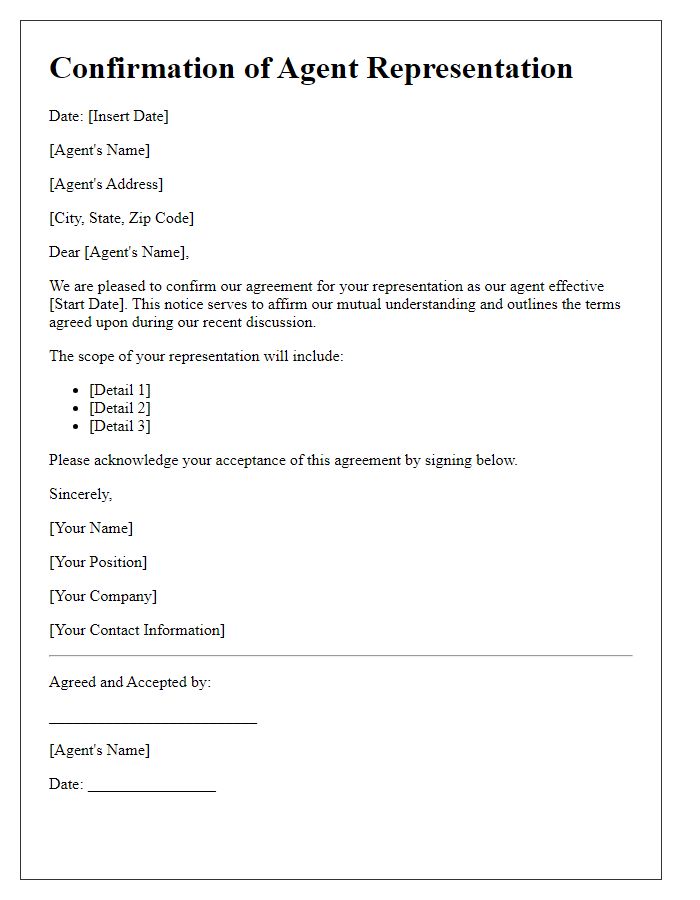
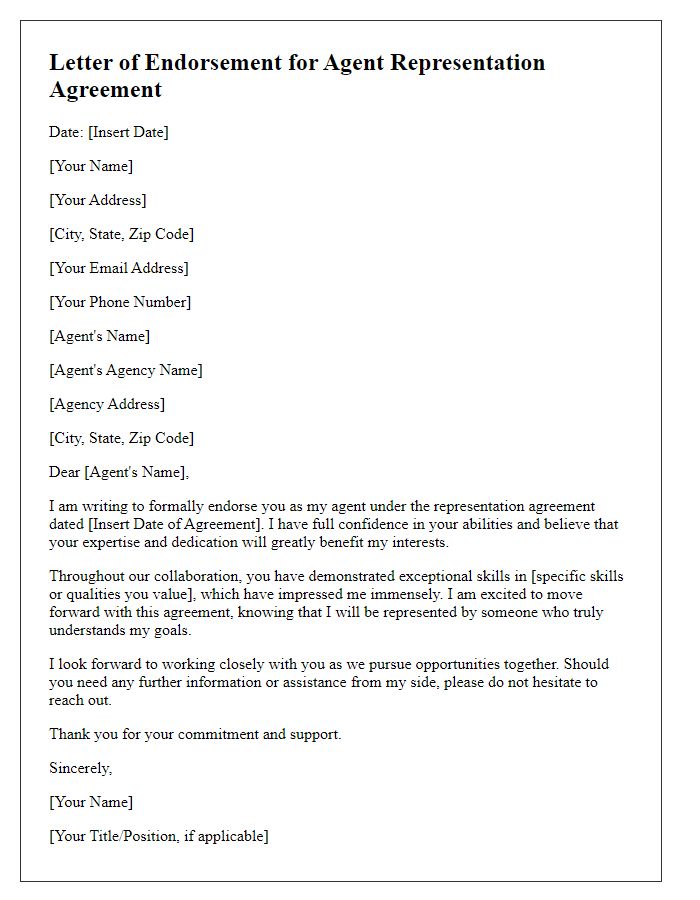
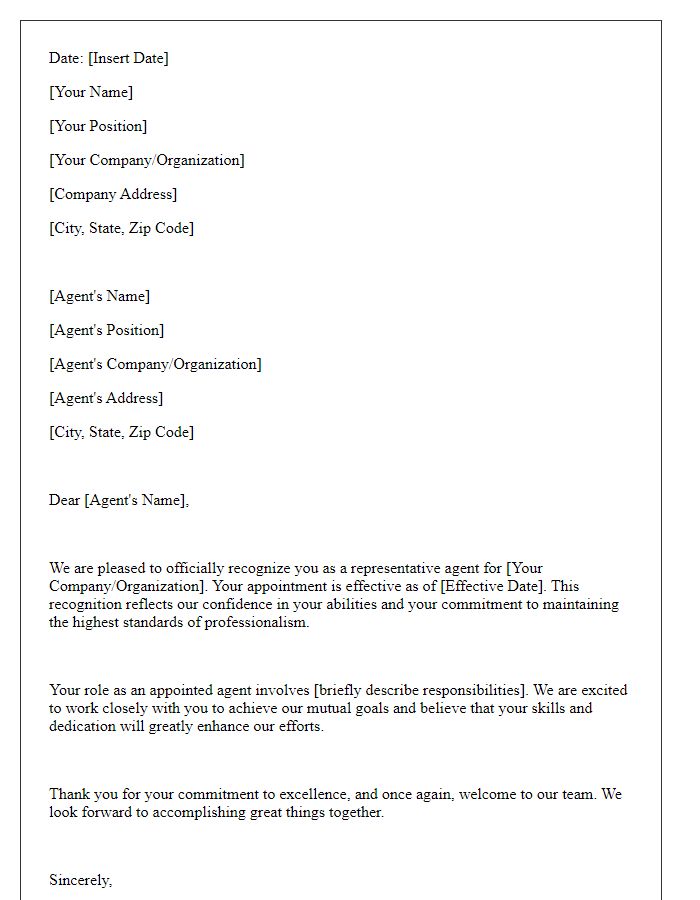
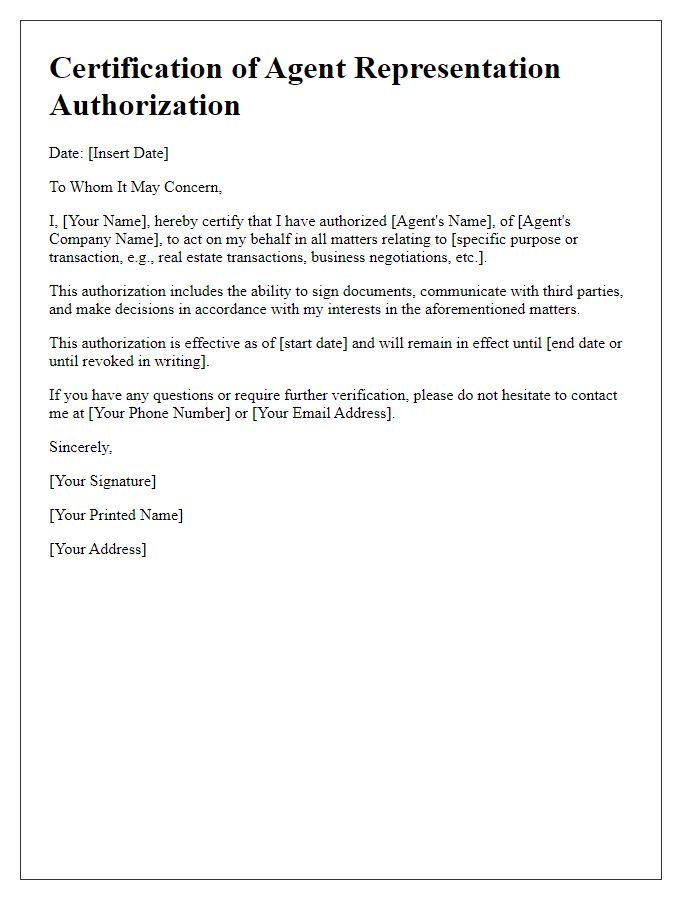


Comments